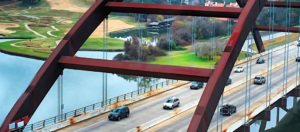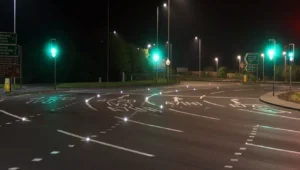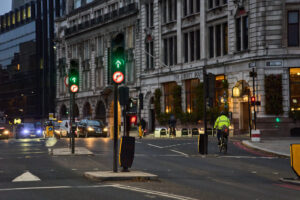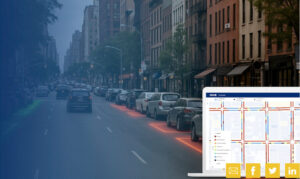New figures analysing traffic congestion in the UK are demonstrating just how much effect the coronavirus crisis has had on journeys over the past year.
The 2020 INRIX Global Traffic Scorecard identifies and ranks congestion and mobility trends throughout the pandemic across more than 1000 cities, across 50 countries – including the UK and reports that on average, British drivers lost just 37 hours in traffic over the past year, down from 115 hours in 2019.
INRIX says this is a decrease of 68% and that in a pre-COVID financial environment, this kind of time reduction would equate to an economic saving of £613 per person which adds up to more than £3.4 billion in time savings compared to 2019.
Drivers in London (69 hours), Lincoln (47 hours) and Bristol (37 hours) lost the most time to traffic congestion, despite seeing large reductions compared with 2019 (53%, 42% and 64% respectively). Belfast (31 hours) saw the largest change in congestion, where delays fell 73% year on year.
Cities in the UK reacted strongly to lockdown measures. During the first UK lockdown, travel to city centres dropped 75% in April. The lifting of that lockdown on June 1st led to strong rebounds in city centre activity and a large increase in trips from April’s low. However, trips to city centres had dropped again by November, in line with the UK’s second lockdown, and these held through December 2nd. By February, the UK entered its third lockdown – coinciding with new COVID-19 variants being discovered. The latest lockdown has caused a 52% retraction in trips to city centres among major cities analysed.
RAC traffic spokesman Rod Dennis said: “These figures really hammer home the impact the pandemic has had on traffic volumes and congestion levels – almost overnight, roads that seemed perpetually grid-locked became deserted as lockdowns were enforced and millions started working from home.
“But despite the reduced congestion in many areas, the private car has continued to play a huge role in people’s lives during this crisis, whether that’s been for essential trips to the supermarkets or visits to see friends and family when the restrictions have allowed. RAC Report on Motoring research shows that more than half of drivers believe having access to a car is more important than it was before the pandemic, and reluctance to use public transport into the future is at an 18-year high.
“Time spent in traffic is frustrating, costly and leads to localised air pollution. The million-pound questions now are when and will congestion return, and to what extent. The return of schools in many parts of the country this week will have an effect, but arguably it is the extent to which regular weekday commuting returns which is likely have to a greater impact on traffic levels. If a degree of home working becomes the norm, there’s a chance things won’t return to how they were pre-Covid.”
(Graphic – INRIX)
























